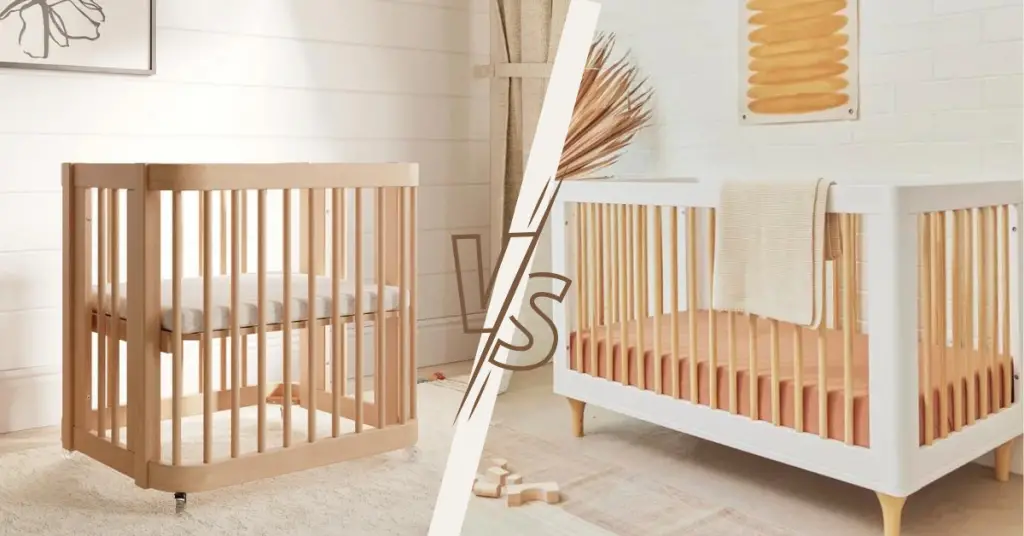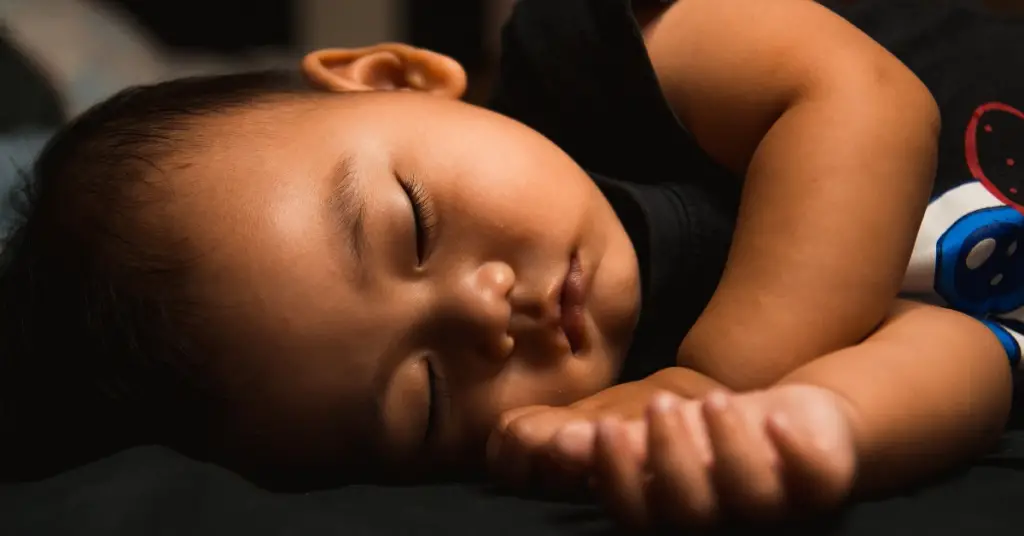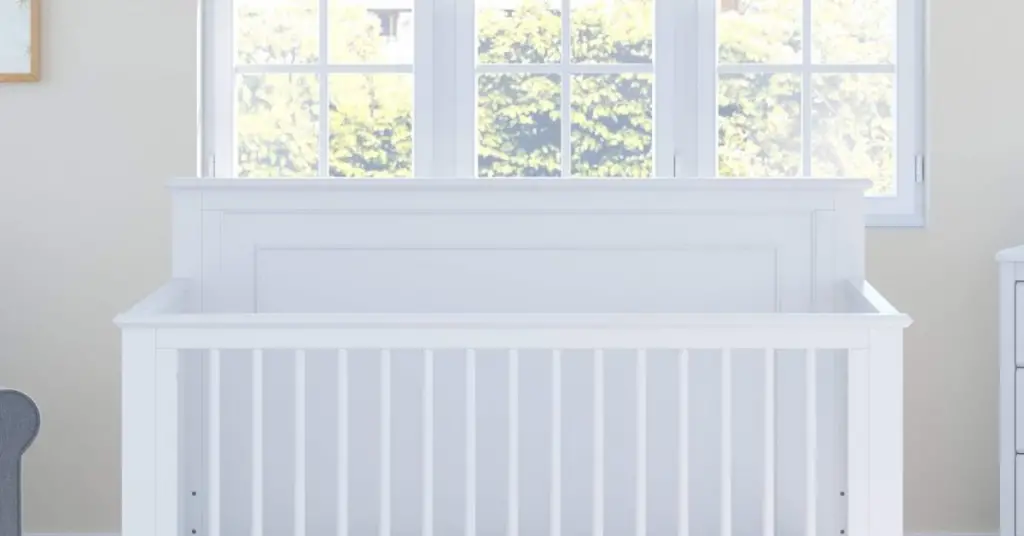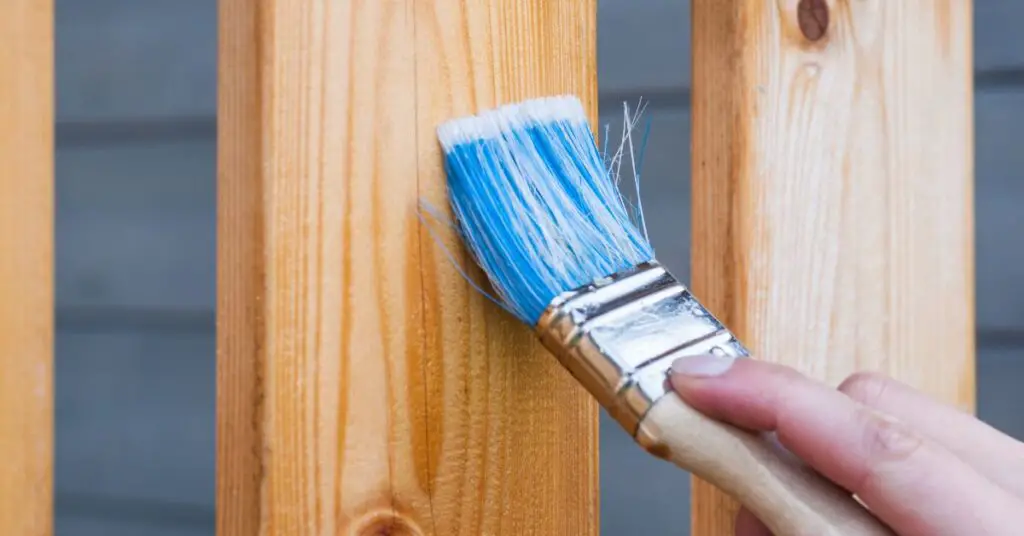Find out whether you should use air conditioning to help your baby get better during a cold, and learn how to choose the right settings for the AC unit in your baby’s room.
The products mentioned on this page were independently selected by Babycious editors. As an Amazon Associate, Babycious may earn a commission from qualifying purchases.
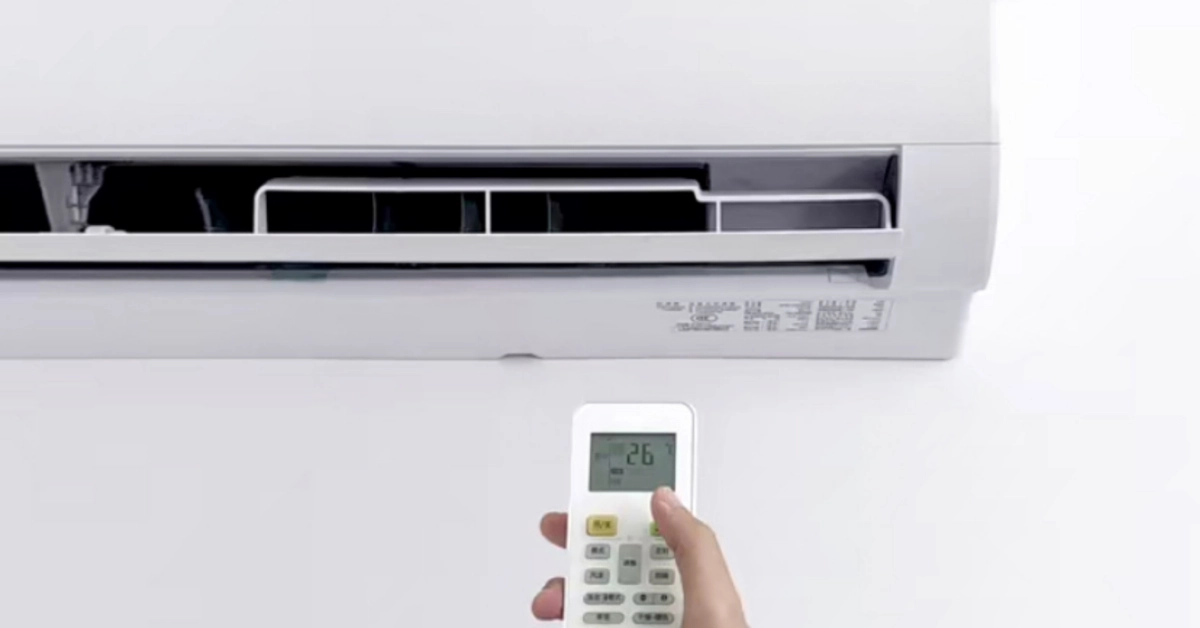
There’s no doubt that air conditioning is a life-saver during the hot summer months and all year round really, but what about using the AC when your baby is sick with a cold or down with fever? Can you still use AC to keep your baby warm and comfortable?
The AC is absolutely safe to use for babies even during cold. Using the air conditioner can even help your baby get better during cold by filtering the air in your baby’s room and eliminating several airborne contaminants that are present in the air. Just make sure that the settings of your AC unit are right regarding humidity and temperature.
In this blog post, we will discuss how air conditioning can actually help your baby get better during cold, and how to choose the right settings for the air conditioning unit in your baby’s room to make the most of it without harming your baby.
How Ac Can Actually Help Your Baby Get Better During Cold
There is a big misconception among parents that using the air conditioning during cold can worsen your baby’s condition. Contrary to popular belief, however, air conditioning is actually a great way to help your baby get better faster.
How Air Conditioning Units Work
An air conditioning unit literally “conditions the air” in your baby’s room to make it cool and comfortable for your baby to breathe. This includes adjusting the humidity levels as well as the temperature, along with filtering and purifying the air.
The basic air conditioning process consists of two main stages: the cooling stage and the dehumidifying stage. In the cooling stage, the AC unit will extract heat from the air in your baby’s room, making it cooler. The dehumidifying stage then removes any excess moisture from the air or adds some humidity depending on your settings, leaving behind a comfortable and healthy environment for your baby to breathe in.
Along with humidity and temperature adjustment, most central AC units have at least one air filter that cleans the air and removes impurities that are present in the air so that it doesn’t blow back contaminated air back into the room.
Benefits of Using Air Conditioner for A Baby with Cold
The main benefit of using the AC during cold is that it helps filter the air in your baby’s room and eliminates a number of airborne contaminants that are present in the air.
When you have your AC unit set to cool, it will remove moisture from the air which can help prevent respiratory problems like asthma and bronchitis. It can also help eliminate allergens in the air that could make your baby’s cold worse.
Is Ac Safe for Babies During Fever?
If your baby is down with a fever, you can use the AC to help cool your baby down. Just make sure that the room is well-ventilated and that you are not using the AC unit in close proximity to your baby or blasting directly on your baby.
In case of fever, you should keep your baby hydrated by breastfeeding them frequently or giving them cold fluids if they are older than 6 months. If the fever is mild, it generally doesn’t cause any discomfort for your baby. It actually helps the body fight the infection.
If the fever is too high or persistent, you should take your baby to see a doctor.
Can AC Make a Cold Worse?
Many parents are hesitant to use the AC during cold because they’re afraid that it will make their baby’s condition worse. This is mostly because in some cases air conditioning can be used incorrectly and cause issues for your family’s health.
You should keep in mind that if the air is robbed of humidity to a great extent, this can be problematic for a baby with a cold. In fact, breathing in extremely dry air can in turn dry out the sinuses and may increase the irritation from the cold.
An easy hack to add some moisture back into your baby’s room is to put a bowl of water on your baby’s dresser to let it evaporate slowly into the air.
That’s why setting up your AC unit correctly, especially in terms of humidity levels, is very important to ensure your baby’s comfort and health.
Choosing the Right Settings for Your AC Unit
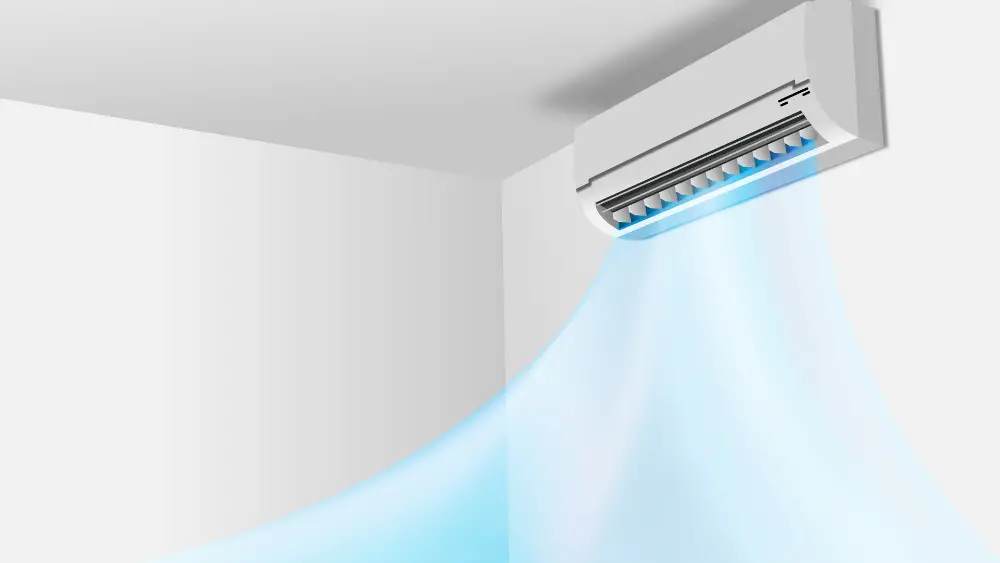
Now that you know how air conditioning can help your baby get better during cold, it’s important to know how to set up your AC unit in your baby’s room so that it provides the most comfort and benefits.
Best AC Temperature for A Sleeping Baby
The best way to set up your AC unit in your baby’s room is to set the temperature between 68 to 72 degrees Fahrenheit (20 to 22 degrees Celsius). This is the temperature that most pediatricians recommend for a baby’s room.
Keep in mind that your baby won’t be able to tell you if they feel hot or cold, so it’s important to maintain their room’s temperature at a comfortable level and adjust their sleep wear according to the season.
Babies are also sensitive to changes in temperature since they can’t regulate their body temperature, as well as adults, can, so it’s important to make gradual changes in the room’s temperature if you’re going to be adjusting it.
Humidity Levels in Your Baby’s Room
The humidity levels in your baby’s room should also be kept between 30 to 50 percent, as anything higher than 60 percent can promote the growth of mold and dust mites.
Picking the right humidity level for your baby’s room within the healthy range of 30 to 50 percent will then depend on your geographical location and the climate it experiences and the time of the year.
Most AC units have a dehumidifying mode which you can use to adjust the humidity levels in your baby’s room. If your AC unit doesn’t have a dehumidifying mode, you can purchase a dehumidifier to help control the humidity levels.
Air Purification Function in AC Units
In terms of air filters, most AC units come with at least one filter. If your AC unit doesn’t have a filter, you should consider purchasing one to help clean the air in your baby’s room.
Even though AC units can technically run without a filter, it’s important to get one to two air filters installed so you can get the best use out of your AC unit and to ensure your baby’s health and safety.
There are a number of different types of air filters that you can get, but the most common type is an activated carbon filter. This type of filter helps remove volatile organic compounds (VOCs) from the air, which are chemicals that can be harmful to your family’s health.
Bottom Line
Air conditioning can be a great way to help your baby get better during cold weather, as long as it’s set up correctly in terms of temperature and humidity levels. Make sure to get an AC unit with a dehumidifying mode if your home doesn’t have one, and also consider getting an air filter to help clean the air in your baby’s room.
The purpose of this article is informative and educational only. It’s not a substitute for medical consultation or medical care. We do not accept any responsibility for any liability, loss, or risk, personal or otherwise, incurred as a consequence, directly or indirectly, from any information or advice contained here. Babycious may earn compensation from affiliate links in this content.
